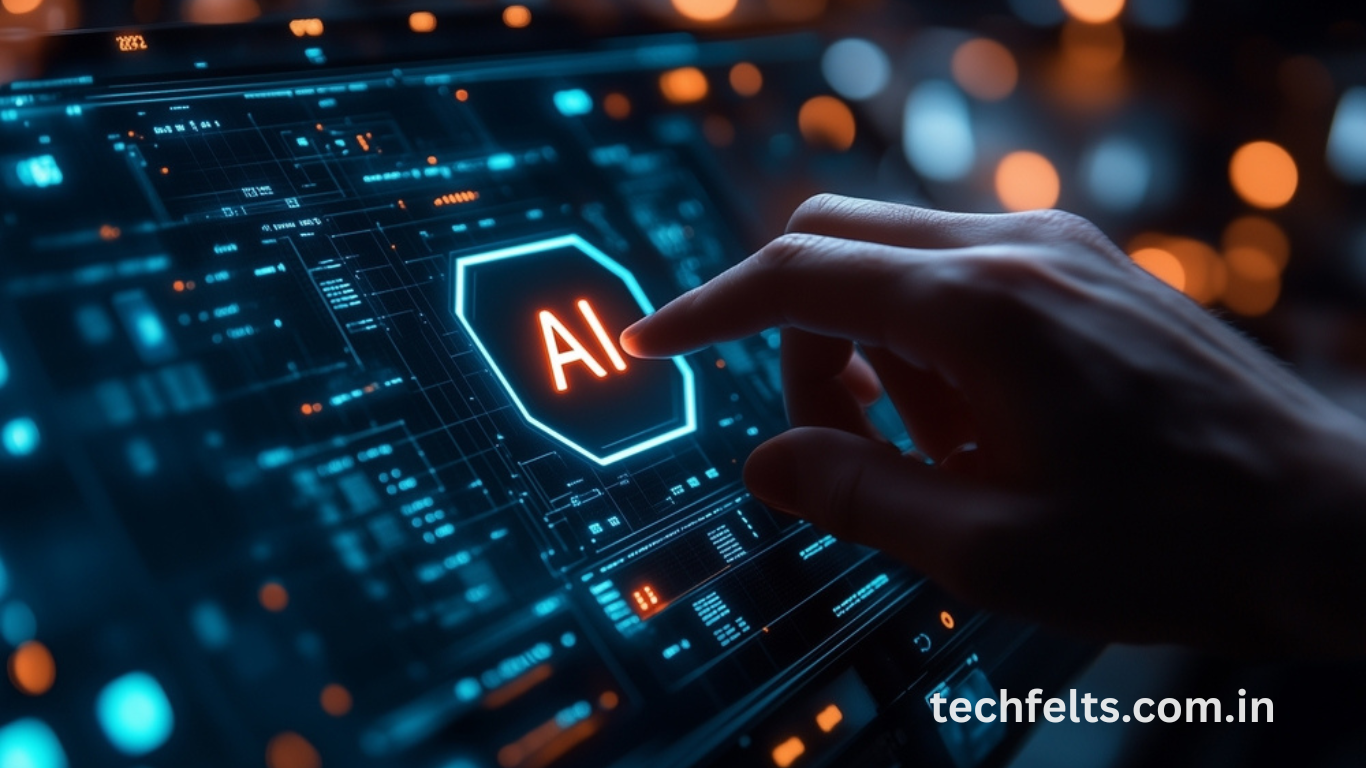Artificial Intelligence (AI) has rapidly shifted from a futuristic concept into a powerful part of our everyday lives. From voice assistants to self-driving cars, AI is redefining how we interact with technology and the world around us. Yet, despite its growing presence, many still wonder what exactly AI is and why it generates so much excitement and concern.
At its core, AI refers to machines designed to mimic human intelligence processes. These include learning, reasoning, problem-solving, and even creativity. With industries like healthcare, finance, education, and entertainment embracing AI, the conversation around its potential, risks, and opportunities continues to intensify. Understanding AI’s true capabilities and implications is crucial as we move further into an AI-driven era.
How Artificial Intelligence is Transforming Industries
AI is revolutionizing sectors like healthcare with predictive diagnostics, finance with algorithmic trading, and retail through personalized shopping experiences. Businesses are leveraging AI to automate routine tasks, boost productivity, and deliver more innovative services, making it an indispensable tool across industries.
The Different Types of Artificial Intelligence
Artificial Intelligence can be categorized into narrow AI, general AI, and superintelligent AI. Narrow AI focuses on specific tasks, general AI strives for human-like cognitive abilities, and superintelligent AI, still theoretical, could surpass human Intelligence dramatically, raising ethical and safety concerns.
Read More : Linux Hack Uses io_uring to Sneak Past Threat Detection
Why Artificial Intelligence is a Hot Topic Today
Rapid advancements in machine learning, deep learning, and natural language processing have made AI more accessible and powerful. Its ability to solve complex problems, improve efficiency, and open new frontiers in innovation is why it captures both excitement and apprehension worldwide.
The Role of Artificial Intelligence in Everyday Life
From recommending movies on streaming platforms to navigating routes on GPS apps, AI subtly powers many daily conveniences. Smart home devices, personalized advertising, voice assistants, and even spam filters on emails all operate using AI technologies we often take for granted.
Ethical Considerations in Artificial Intelligence Development
As AI systems become more autonomous, questions about bias, fairness, and accountability arise. Developers must ensure that AI algorithms are transparent, ethical, and designed with privacy and safety in mind to prevent harm and foster trust among users.
Frequently Asked Questions
What is Artificial Intelligence?
Artificial Intelligence refers to machines programmed to simulate human Intelligence, including tasks like learning, reasoning, and problem-solving.
How is AI used in everyday life?
AI is embedded in applications such as voice assistants, recommendation systems, navigation apps, and smart home devices, enhancing convenience and efficiency.
What are the types of AI?
The three main types are narrow AI (specific tasks), general AI (human-like capabilities), and superintelligent AI (theoretical advanced Intelligence).
Is AI a threat to jobs?
AI may automate some roles, but it also creates new opportunities in tech, data analysis, AI maintenance, and creative fields, shifting rather than eliminating jobs.
Can AI be creative?
Yes, AI can compose music, generate artwork, and write stories using machine learning models trained on vast datasets, though creativity differs from human expression.
How does AI impact privacy?
AI systems often rely on large amounts of data, raising concerns about data privacy, security, and the ethical use of personal information.
What industries benefit the most from AI?
Thanks to AI-driven innovation and automation, healthcare, finance, education, manufacturing, retail, and logistics have seen significant advancements.
Will AI ever surpass human Intelligence?
Superintelligent AI is a theoretical concept that suggests machines could eventually exceed human cognitive abilities, but it remains a subject of debate and research.
Conclusion
Artificial Intelligence is not just a buzzword; it’s a transformative force reshaping how we live and work. Understanding its evolution, applications, and ethical implications is key to navigating the AI-driven future.

